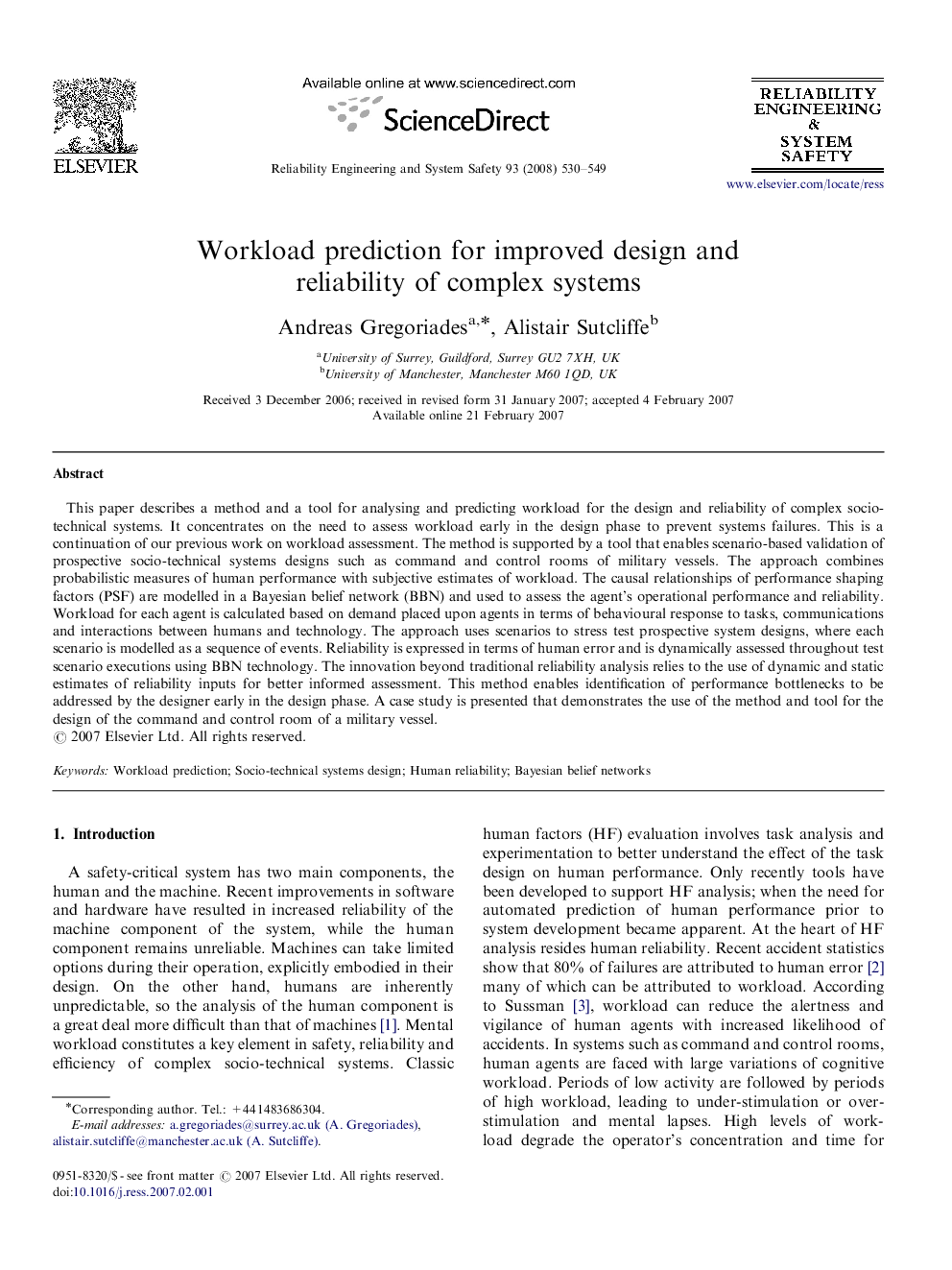| Article ID | Journal | Published Year | Pages | File Type |
|---|---|---|---|---|
| 806060 | Reliability Engineering & System Safety | 2008 | 20 Pages |
This paper describes a method and a tool for analysing and predicting workload for the design and reliability of complex socio-technical systems. It concentrates on the need to assess workload early in the design phase to prevent systems failures. This is a continuation of our previous work on workload assessment. The method is supported by a tool that enables scenario-based validation of prospective socio-technical systems designs such as command and control rooms of military vessels. The approach combines probabilistic measures of human performance with subjective estimates of workload. The causal relationships of performance shaping factors (PSF) are modelled in a Bayesian belief network (BBN) and used to assess the agent's operational performance and reliability. Workload for each agent is calculated based on demand placed upon agents in terms of behavioural response to tasks, communications and interactions between humans and technology. The approach uses scenarios to stress test prospective system designs, where each scenario is modelled as a sequence of events. Reliability is expressed in terms of human error and is dynamically assessed throughout test scenario executions using BBN technology. The innovation beyond traditional reliability analysis relies to the use of dynamic and static estimates of reliability inputs for better informed assessment. This method enables identification of performance bottlenecks to be addressed by the designer early in the design phase. A case study is presented that demonstrates the use of the method and tool for the design of the command and control room of a military vessel.
